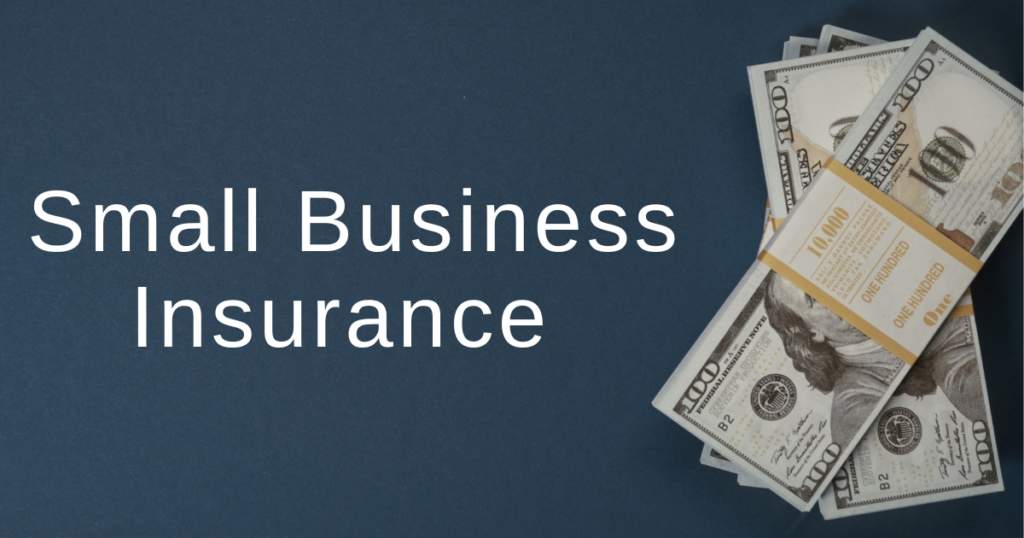What is Small Business Insurance?
Small business insurance is a type of insurance coverage designed to protect small businesses from financial losses due to unexpected events or liabilities. It provides comprehensive coverage for various aspects of a business, including property damage, liability claims, employee injuries, and business interruption. Small business insurance policies are tailored to meet the unique needs and risks faced by small businesses, offering protection against a wide range of potential threats.

Types of Small Business Insurance
General Liability Insurance
General liability insurance protects businesses from claims of bodily injury, property damage, and advertising injury. This type of insurance provides coverage for legal expenses, settlements, and judgments arising from lawsuits filed by third parties, such as customers, vendors, or other businesses. For example, if a customer slips and falls on a wet floor in a retail store and sues the business for medical expenses and lost wages, general liability insurance would cover the costs associated with the claim, including legal defense fees and any awarded damages.
General liability insurance typically covers:
- Bodily Injury: Claims arising from physical harm to a person, such as slip-and-fall accidents or injuries caused by a defective product.
- Property Damage: Claims for damage to someone else’s property caused by the insured’s business operations.
- Advertising Injury: Claims for alleged defamation, copyright infringement, or other offenses related to advertising.
Property Insurance
Property insurance covers damage to business property, including buildings, equipment, inventory, and furniture, due to fire, theft, vandalism, or natural disasters. This type of insurance helps businesses recover financially from property losses by providing funds to repair or replace damaged or stolen assets. Property insurance policies may also include coverage for business interruption, which compensates businesses for lost income and operating expenses when a covered event, such as a fire or flood, disrupts business operations.
Property insurance typically covers:
- Buildings: The physical structure of the business premises, including walls, floors, and ceilings.
- Business Personal Property: Equipment, inventory, furniture, and other assets owned by the business.
- Business Interruption: Lost income and ongoing expenses incurred when a covered event disrupts business operations.
Business Interruption Insurance
Business interruption insurance provides financial compensation for lost income and expenses incurred when a covered event disrupts business operations. This type of insurance helps businesses recover from temporary closures or disruptions by reimbursing them for lost revenue, ongoing expenses, and additional costs incurred to resume operations, such as renting temporary facilities or hiring extra staff. Business interruption insurance is often included as part of a comprehensive insurance package or can be purchased as a standalone policy.
Business interruption insurance typically covers:
- Lost Income: Revenue lost due to the closure or interruption of business operations.
- Operating Expenses: Ongoing expenses such as rent, utilities, payroll, and loan payments.
- Extra Expenses: Additional costs incurred to mitigate the effects of the interruption, such as renting temporary space or relocating equipment.
Workers’ Compensation Insurance
Workers’ compensation insurance covers medical expenses and lost wages for employees who are injured or become ill on the job. This type of insurance is mandatory in most states for businesses with employees and helps protect both employers and employees in the event of a workplace injury or illness. Workers’ compensation insurance provides financial support to injured workers by covering medical treatment, rehabilitation services, and a portion of lost wages while they are unable to work. It also protects employers from lawsuits filed by injured employees seeking compensation for their injuries.
Workers’ compensation insurance typically covers:
- Medical Expenses: Treatment for work-related injuries or illnesses, including doctor visits, hospital stays, surgeries, and medications.
- Lost Wages: A portion of the employee’s income lost due to temporary or permanent disability caused by a work-related injury or illness.
- Disability Benefits: Financial compensation for partial or total disability resulting from a work-related injury or illness.
Professional Liability Insurance
Professional liability insurance, also known as errors and omissions insurance, protects businesses from claims of negligence or inadequate work. This type of insurance is commonly used by professionals who provide services or advice to clients, such as doctors, lawyers, architects, and consultants. Professional liability insurance covers legal expenses, settlements, and judgments arising from claims of professional errors, omissions, or negligence, including allegations of malpractice, breach of contract, or failure to deliver promised services.
Professional liability insurance typically covers:
- Negligence: Claims arising from mistakes, errors, or oversights made by the insured professional in the course of providing services or advice to clients.
- Legal Defense Costs: Expenses associated with defending against claims, including attorney fees, court costs, and settlement negotiations.
- Damages: Payments awarded to clients for financial losses, property damage, or other harm resulting from the insured professional’s actions or advice.
Commercial Auto Insurance

Commercial auto insurance covers vehicles used for business purposes, including company cars, delivery vehicles, and trucks. This type of insurance provides coverage for property damage, bodily injury, and medical expenses resulting from accidents involving business-owned vehicles. Commercial auto insurance policies can be tailored to meet the specific needs of businesses, including coverage for multiple vehicles, drivers, and types of vehicles, such as vans, trucks, or specialized equipment.
Commercial auto insurance typically covers:
- Liability: Damages and legal expenses resulting from accidents caused by the insured vehicle, including property damage and bodily injury to third parties.
- Collision: Damage to the insured vehicle caused by a collision with another vehicle or object.
- Comprehensive: Damage to the insured vehicle caused by non-collision events, such as theft, vandalism, or natural disasters.
Cyber Liability Insurance
Cyber liability insurance protects businesses from losses due to data breaches, cyberattacks, and other cyber incidents. This type of insurance provides coverage for costs associated with responding to and recovering from cyber incidents, including notifying affected individuals, investigating the breach, restoring data, and defending against lawsuits. Cyber liability insurance also covers losses resulting from business interruption, extortion demands, and regulatory fines or penalties imposed by government agencies.
Cyber liability insurance typically covers:
- Data Breach Response Costs: Expenses associated with notifying affected individuals, investigating the breach, and providing credit monitoring services.
- Data Restoration Costs: Expenses incurred to restore or recover lost or corrupted data resulting from a cyber incident.
- Business Interruption: Lost income and extra expenses incurred when a cyber incident disrupts business operations.
Product Liability Insurance
Product liability insurance covers businesses against claims of injury or damage caused by products they manufacture or sell. This type of insurance provides financial protection in the event that a product defect or failure leads to bodily injury, property damage, or financial losses for consumers. Product liability insurance covers legal expenses, settlements, and judgments arising from product-related lawsuits, including allegations of design defects, manufacturing defects, or failure to warn consumers about potential risks.
Product liability insurance typically covers:
- Legal Defense Costs: Expenses associated with defending against product-related claims, including attorney fees, court costs, and settlement negotiations.
- Damages: Payments awarded to consumers for bodily injury, property damage, or financial losses resulting from a defective or unsafe product.
- Recall Costs: Expenses associated with recalling and replacing defective
Importance of Small Business Insurance
Small business insurance is essential for protecting the financial stability and longevity of a business. It helps mitigate the financial risks associated with running a business and provides peace of mind to business owners, knowing that they are adequately protected against potential losses.
Running a business involves various risks, including liability claims, property damage, and unexpected events that could disrupt operations. Without insurance, small businesses may face significant financial hardship or even bankruptcy in the event of a lawsuit, property damage, or other unforeseen circumstances. For example, if a customer sues a small business for injuries sustained on the premises, the legal expenses and potential settlement costs could be substantial. Similarly, if a fire damages a business’s property and equipment, the cost of repairs or replacement could be overwhelming without insurance coverage.
By investing in small business insurance, business owners can focus on growing their business and serving their customers, rather than worrying about the financial consequences of unexpected events. Insurance provides a safety net, allowing businesses to recover from setbacks and continue operations with minimal disruption. It enables business owners to transfer some of the financial risks associated with running a business to an insurance company, providing financial protection and stability.
Moreover, having insurance coverage can enhance a business’s credibility and reputation, as it demonstrates a commitment to responsible business practices and protecting stakeholders’ interests. Customers, suppliers, and partners may feel more confident doing business with a company that has adequate insurance coverage in place.
Please Read More: Health insurance
Please Read More: cleveland mesothelioma attorney in north carolina
Conclusion
I hope that you would have liked some other posts. Friend, if you liked this post, then you must like this post and share it with your friends. I know that you would have liked the given information very much. If you are related to this question, If you have any questions, please leave a leave a comment.
